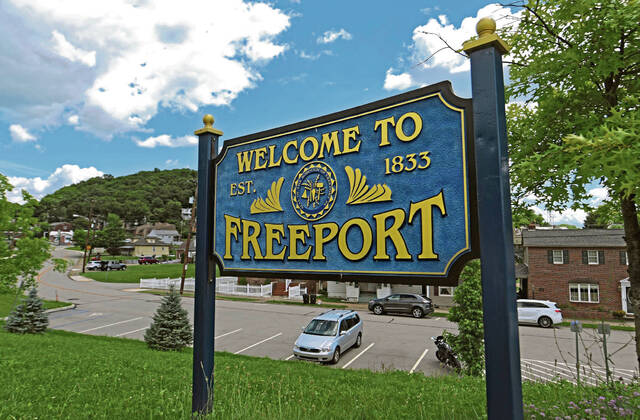https://triblive.com/local/valley-news-dispatch/freeport-residents-expected-to-see-80-increase-in-sewage-bills-to-pay-for-new-treatment-plant/
Freeport residents expected to see 80% increase in sewage bills to pay for new treatment plant

Early estimates indicate residential customers tied into Freeport’s sewage system will see their monthly bill jump from about $50 to about $90 in order for the borough to build a new sewage treatment plant.
That estimate was given Monday, when Freeport Council approved a bond issue to help finance its planned $18.6 million sewage treatment plant.
Council unanimously authorized a bond issue of up to $8.9 million. But the borough’s bond underwriter and bond counsel said the actual bond issue will be somewhere between $6 million and $6.5 million.
The nearly $3 million cushion included is the state’s idea, according to investment banker Chris Shelby of Piper Sandler, the bond underwriting firm.
Shelby said, once the bond sale takes place, the $8.9 million figure will be “meaningless.”
Robert Horvat, the project’s engineer from KLH Engineering, said the cost of the treatment plant will be $18.6 million, which is firm.
“We have construction contracts in place,” Horvat said. “We’re holding off (starting construction) until our funding is in place, and the PennVEST money will be the final piece.”
Related• Freeport lands $11 million grant to pay for most of new sewage treatment plant • Freeport Council moves forward with financing for sewage treatment plant • Freeport to receive $1.5 million from federal budge for new sewage plant
The bulk of the project’s financing is from an $11 million PennVEST “zero-interest loan,” which Horvat said in reality is a grant that the borough won’t have to repay.
In addition, the borough is receiving a $1.5 million federal grant through U.S. Sen. Bob Casey’s office, bringing the financing in hand to $12.5 million.
The $6 million borrowed via the bond issue will making up the difference.
Horvat said additional financing may be forthcoming from the state in the form of an H2O PA grant. That grant is for $1.2 million but requires a $1.2 million match from the borough; some of the bond proceeds can cover that. However, he said the borough might not receive word on whether their application has been approved until September.
According to Horvat, the current $49.41 monthly residential sewage rate will see a significant increase.
“It’s going to be somewhere between $80 and $90 a month, depending on how we structure those,” he said.
That’s an increase of about 80%.
Freeport is under intense pressure to build a new sewage treatment plant because it current system too often sends raw sewage into the Allegheny River, and the system is considered to be old.
Council President Clint Warnick expressed concern about the timetable for completing the financial package and the start of construction, as the borough faces a state and federal deadline.
“I think it is the end of July that everything has to be done,” Warnick said.
Horvat, Shelby and bond counsel Sean C. Garin of the law firm Dinsmore & Shohl, LLP indicated that deadline should be met.
Garin and Shelby said council’s bond issue approval is a critical step. Standard and Poor’s, the bond rating agency, reviewed the borough’s proposed bond issue — which Warnick believes is its first ever — but deferred on issuing a rating.
“The borough is a small borough, and no matter how good your credit is, you can’t change that,” Shelby said.
“This is a big bond issue for a little system in a little borough,” Garin said, noting the borough’s tax base and financial resources are limited.
Passing the bond ordinance confirms to Standard and Poor’s that the repayment of the bond issue is secured through the sewage rates paid by Freeport residents and businesses, according to Shelby.
“That changes everything,” Shelby said. “It gives us a structure that we can submit to the bond rating company.”
He and Garin believe the bond rating will be issued some time in April, allowing the bond sale to proceed. Horvat said the PennVEST financing, again the final piece, would be finalized May 17, all of which should allow construction to begin well ahead of the borough’s July deadline.
Garin said the borough’s annual debt service on the bond issue is $469,000 just on the principal and interest. But there’s a required contingency of 10%, roughly $46,000, the make the total $515,000.
Garin said the borough can take money it has in the sewer fund and set it aside to cover that extra 10%. He said then it can be rolled over from year to year without borough officials having to worry about allocating that amount each year. If there is a draw-down on it, the borough would simply replace whatever is used.
Copyright ©2026— Trib Total Media, LLC (TribLIVE.com)
